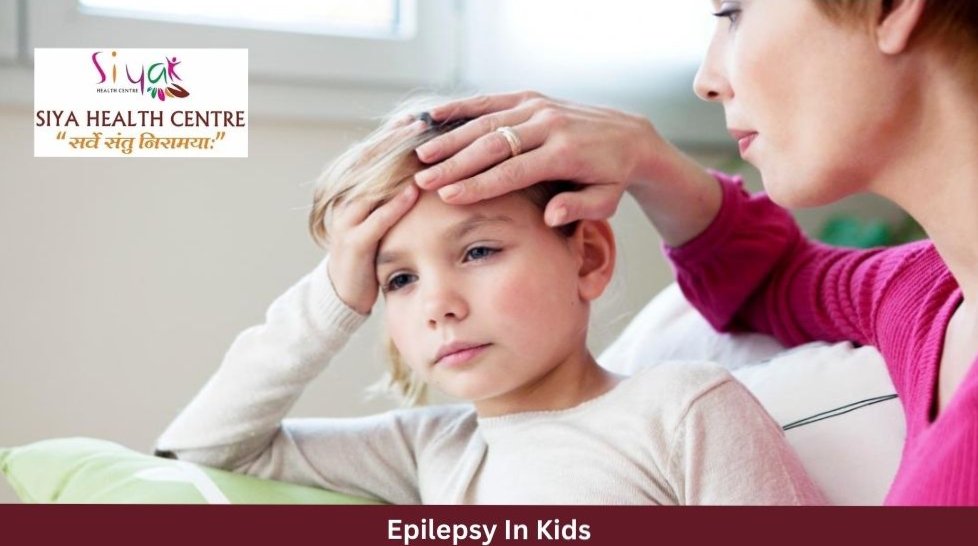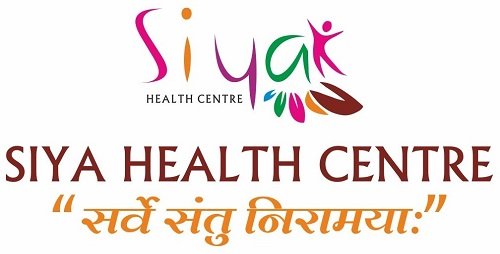Epilepsy in Kids
Best Doctor for Epilepsy in kids, It is a condition where children have recurring seizures because their brains have unusual electrical activity. These seizures can happen often or occasionally and can be mild or severe, affecting how kids live their daily lives, grow up, and feel about themselves.
Dr. Ratnesh Khare is a well-known pediatric doctor in Indore specializes in epilepsy at Siya Health Care in Indore. He plays a very important role in diagnosing and treating this condition with his deep knowledge of pediatric neurology. Dr. Khare carefully checks each child to make sure they get the right diagnosis. He uses detailed tests like EEG (electroencephalogram) to watch how their brains work and figure out the best way to help them.
At Siya Health Care, Dr. Ratnesh Khare works closely with families to make personalized plans for each child based on their needs and the type of seizures they have. These plans often include medicines to control seizures, special diets like the ketogenic diet for some children, and sometimes even surgery or special treatments like vagus nerve stimulation (VNS).
Dr. Khare and his team don’t just focus on stopping seizures. They also think about how epilepsy can affect a child’s growth, learning, and friendships. They work hard to give children with epilepsy in Indore the best care possible, making sure they have the healthiest brains and the best quality of life. Their dedication means that kids with epilepsy get the top-level care they need to live well.

Book Your Consultation Today Child Specialist in Indore– Dr. Ratnesh Khare
Symptoms of Epilepsy in Kids
Seizures
Seizures are the main sign of epilepsy and can vary widely in how they look. Some are big, like generalized tonic-clonic seizures (also called grand mal seizures), where a child loses consciousness and their body stiffens and jerks. Others are smaller, like absence seizures (petit mal seizures), where the child seems to stare off for a short time. Dr. Ratnesh Khare at Siya Health Care is an expert at finding out if a child is having seizures. He listens carefully to parents and caregivers to understand what happens during a seizure. He also does detailed tests like EEG to see how the child's brain is working and figure out what type of seizure it might be.
Unusual Movements or Behaviors
Children with epilepsy might do the same movement repeatedly, like smacking their lips, chewing, or moving their legs in a cycling motion. Dr. Khare can tell if these movements are because of epilepsy or something a child does naturally. He observes how children behave and uses special tests like video EEG to see if it's a seizure causing these movements.
Sudden Changes in Awareness or Consciousness
Epilepsy can make kids suddenly feel confused or lose awareness completely for a short time. Dr. Ratnesh Khare listens to what parents and caregivers say about these changes and uses EEG to check for unusual brain patterns linked to these moments of confusion or lost awareness.
Emotional or Behavioral Changes
Some kids might feel sudden fear, anxiety, or strong emotions during a seizure. Dr. Khare observes how a child's emotions change during a seizure. He talks to caregivers to understand these changes better and uses his experience to help manage them.
Physical Symptoms After Seizures
After a seizure, kids might feel tired, get a headache, have sore muscles, or feel confused. Dr. Ratnesh Khare takes care of kids after a seizure to help with these symptoms. He makes sure they feel better and can rest safely.
Dr. Ratnesh Khare is known for his skills in pediatric neurology at Siya Health Care in Indore, especially in the case of epilepsy. He makes sure kids with epilepsy get the correct diagnosis, a plan that fits their needs, and support to manage symptoms well. His dedication to helping each child shows why he's a trusted doctor for epilepsy in Indore.
Treatments for Epilepsy in Kids
Medication Therapy
Description: Antiepileptic medications (AEDs) are the main way doctors treat seizures in kids with epilepsy. These medicines help by making the brain’s electrical activity more stable.
Expertise: Dr. Ratnesh Khare specializes in pediatric neurology. He picks the right AEDs based on the type of seizures, the child’s age, health, and possible side effects. Dr. Khare carefully watches how well the medicines work and changes the doses when needed to keep seizures under control.
Ketogenic Diet
Description: The ketogenic diet is a special diet that is high in fats and low in carbohydrates. It might be suggested for kids with epilepsy, especially if their seizures don’t get better with medicines.
Expertise: Dr. Khare oversees how kids use the ketogenic diet at Siya Health Care. This diet changes how the brain uses energy and has been shown to make seizures happen less often in some kids. Dr. Khare checks regularly to make sure the diet is balanced and effective.
Surgical Interventions
Description: When seizures come from one part of the brain and medicines don’t work well enough, surgery might be an option. This could mean taking out or disconnecting the part of the brain causing the seizures.
Expertise: Dr. Ratnesh Khare, best pediatric doctor in Indore, carefully evaluates whether a child might benefit from epilepsy surgery. He works closely with brain surgeons to understand the risks and benefits. Before surgery, he checks everything carefully, and after surgery, he gives careful care to help kids get better.
Vagus Nerve Stimulation (VNS)
Description: VNS uses a small device under the skin near the chest to send tiny electrical signals to the vagus nerve in the neck. This can help make seizures happen less often and be less strong.
Expertise: Dr. Khare talks with families about how VNS could help their children. He manages to put in the device and changes how it works to give the best control over seizures and make life better.
Behavioral and Educational Support
Description: Kids with epilepsy might need help with feelings or learning because of their condition. Therapies like cognitive-behavioral therapy (CBT) can help with feelings like worry. Schools might change how they teach to help with learning.
Expertise: Dr. Ratnesh Khare puts these supports into his plans at Siya Health Care. He makes sure each child gets the help they need to manage epilepsy well. By looking at everything a child needs, Dr. Khare aims to make life better for kids and their families dealing with epilepsy in Indore.
Dr. Ratnesh Khare's comprehensive approach to treating epilepsy in children at Siya Health Care in Indore combines evidence-based medicine with personalized care, aiming to achieve optimal epilepsy control and enhance the quality of life for young patients in Indore. By focusing on medication adherence, education, and proactive monitoring, Dr. Khare and his team empower families to manage epilepsy effectively.
Frequently Asked Questions
Epilepsy is a condition where people have repeated seizures due to abnormal brain activity. It can affect anyone, including kids.
Epilepsy can happen because of different reasons like genetics, head injuries, infections such as meningitis, developmental issues like cerebral palsy, or problems with metabolism. Dr. Ratnesh Khare, the best pediatric doctor in Indore, carefully checks each child to find out what caused their epilepsy.
Doctors diagnose epilepsy in kids by asking about their health, doing tests to check brain and body functions, and using an EEG to watch brain activity during seizures.
Epilepsy can have different types of seizures: big ones (generalized tonic-clonic), small ones (absence seizures), sudden jerks (myoclonic seizures), focused ones (partial seizures), or drop attacks (atonic seizures). Each type needs different treatments.
Epilepsy treatment include medicines (AEDs) to control seizures, special diets like the ketogenic diet, surgery if needed, techniques like vagus nerve stimulation (VNS), or therapy. Dr. Ratnesh Khare at Siya Health Care in Indore, plans the best treatment for each child, based on their needs and goals.
Some kids may outgrow epilepsy, especially if their seizures are part of certain childhood syndromes. How likely this is depends on what caused it and what kind of seizures they have. Dr. Khare watches and changes treatments as needed.
Stay calm and keep your child safe during a seizure. Move them away from harm, time how long it lasts, and note what happens. After the seizure ends, comfort them, check for injuries, and get help if it’s their first seizure, lasts longer than usual, or they have trouble breathing.

